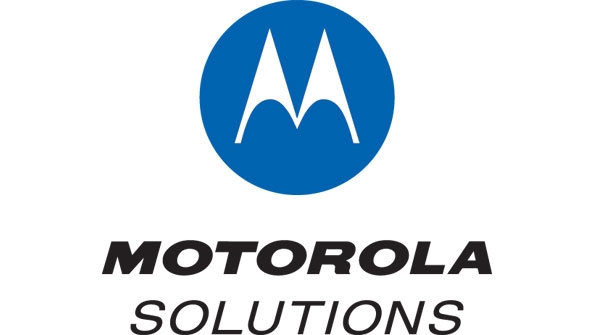Motorola Solutions “likely” to exit LTE-based ESN in UK early, company says
Motorola Solutions expects to “exit” its role as a key vendor for the Emergency Services Network (ESN)—the much-delayed public-safety LTE system in the United Kingdom (UK)—in the near future while continuing to oppose a UK watchdog’s findings that its Airwave TETRA service is anticompetitive, company officials said.
Motorola Solutions CEO Greg Brown said the company’s current contract to deliver software solutions and integrations to ESN—most notably, a mission-critical-push-to-talk (MCPTT) platform—is set to expire at the end of 2024.
“In terms of ESN, I think it’s the result of ongoing conversations with the customer [the UK Home Office],” Brown said yesterday during the company’s quarterly conference call with financial analysts. “I think, more recently, they reached a … late-stage negotiation where—at this point—we think it’s more likely than not that we will be exiting ESN earlier than the expiration of 2024.
“We don’t have an agreement signed with them at this point, but I think there’s mutual interest in reaching that conclusion, and we continue to work toward that end. I think we both think it’s the right thing to do and a reasonable way forward.”
One analyst asked whether Motorola Solutions’ anticipated exit from its ESN role would hurt the company’s long-term strategic plans, noting that some perceived the LTE-based ESN as a “hedge” for Motorola Solutions against the eventual shutdown of Airwave. Brown said he does not believe that is the case.
“I point you to the U.S., where we’re a subcontractor to AT&T for all things FirstNet, which is a 4G—now evolving to 5G—high-speed LTE network, and we participate in that,” Brown said.
“At the same time, we continue to grow and build LMR here domestically in the states. In fact, we see record demand for LMR here in the U.S. while simultaneously participating in FirstNet. So, I don’t see it as a hedge, and I don’t see it as a tradeoff, per se.”
Motorola Solutions CFO Jason Winkler said the company expects to realize about $65 million in revenue this year from its ESN contract, while taking a $147 million “non-cash fixed-asset impairment charge recognized during [the third quarter] related to the now-planned exit from the ESN contract.”
Exiting ESN is expected to reduce Motorola Solutions’ backlog of business by $99 million, but the company’s backlog is still at a record level of $13.5 billion, Winkler told analysts.
This “mutual” decision to have Motorola Solutions exit its ESN role comes in the wake of the UK Competition and Markets Authority (CMA) last month releasing the provisional decision of its market investigation regarding the expensive Airwave TETRA network, which is owned by Motorola Solutions. The ESN was supposed to replace Airwave as the mission-critical communications network for UK first responder by the end of 2019, but the LTE-based ESN system is not expected to be ready until at least 2026, according to UK government filings.
More than 550 pages in length, the comprehensive CMA report proposes limiting Motorola Solutions’ annual revenue from Airwave to less than 200 million pounds ($224.3 million), which would be less than half of the 433.5 million pounds ($486.2 million at current exchange rates) in revenue that Airwave reported in 2020.
Brown reiterated the fact that Motorola Solutions disagrees with the CMA provisional decision and is seeking an alternative to the proposed remedies.
“We disagree with the CMA’s provisional decision and their findings,” Brown said. “We still are convicted in our position. I think we feel the CMA’s provisional decision is legally and economically flawed. I think it’s not proportional. It’s unprecedented and overreaching.
“We’ll continue to work it. We will defend our position and pursue all legal avenues that are available to us—including appeals—if we think that’s the right thing to do.”
One of the issues raised in CMA investigation was whether Motorola Solutions’ “dual role”—as owner of the legacy Airwave TETRA network and as a key vendor for the ESN—has incentivized the company to slow its delivery of the mission-critical-push-to-talk (MCPTT) solution needed to make an Airwave shutdown realistic.
Motorola Solutions exiting the ESN project would address the “dual role” issue, but the CMA’s provisional decision noted that it still would make the same recommendations if the vendor was no longer part of the public-safety LTE project, because it would not address the “supernormal” profits associated with Airwave.
According to the CMA, the Airwave contract “accounted for 7-8% of Motorola’s global revenue—but between 21% and 26% of its global pre-tax profits—in 2018, 2019 and 2020.” In many recent years, the profit from Airwave has represented the bulk of Motorola Solutions’ global profits outside of North America, according to financial sources.
CMA provisional decision proposes limiting Motorola Solutions’ annual revenue from Airwave to less than 200 million pounds ($224.3 million), which would be less than half of the 433.5 million pounds ($486.2 million at current exchange rates) in revenue that Airwave reported in 2020.
Brown acknowledged the CMA’s stance, but he also noted that it is possible that Motorola Solutions could negotiate with the UK Home Office to reach different financial terms than the significant decreases proposed by the CMA.
“It’s also worth mentioning that there is a notation in the actual provisional decision that includes a potential invitation for the Home Office and us to agree to a different arrangement than what the CMA has proposed. That’s explicit and referenced embedded in the provisional [decision]. We would certainly be open to that conversation.”
Between the ESN announcement and the proposed CMA remedies associated with the Airwave investigation, Motorola Solutions could see its projected UK revenues for the next four years decrease by more than $1 billion.
Despite this Motorola Solutions’ stock price jumped significantly in morning trading in the U.S., hovering at about $250 per share, compared to $238.19 per share at yesterday’s close.
This share-price increase likely is attributable to Motorola Solutions’ strong third quarter, which saw the company achieve record sales amid strong demand from customers, many of which are able to pay for systems with the help of money from government grant programs, Brown said.
Brown also expressed optimism about Motorola’s future.
“As I look ahead, the momentum of our business is strong. Our investments in the portfolio, combined with a robust funding environment, are driving an increased demand for our solutions. Our supply-chain execution of higher inventory is helping us navigate a continually challenging environment to meet this record demand.”
















